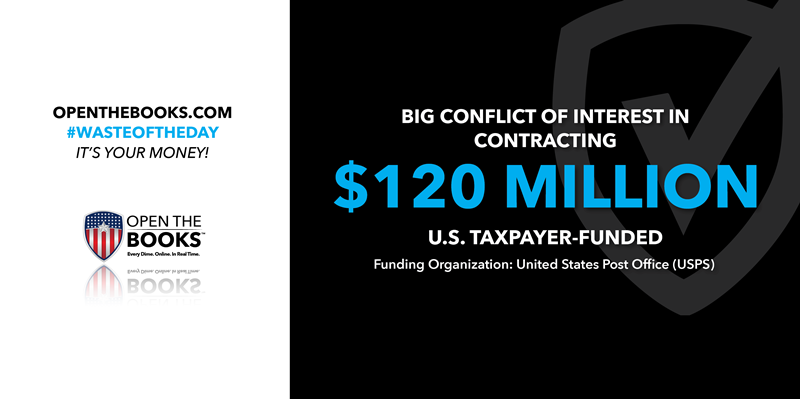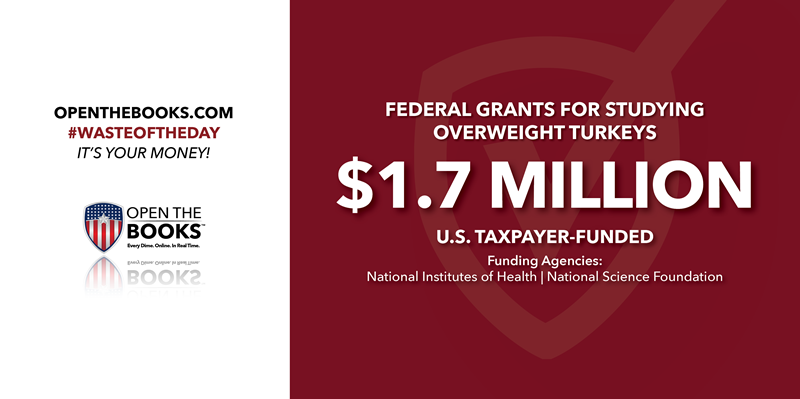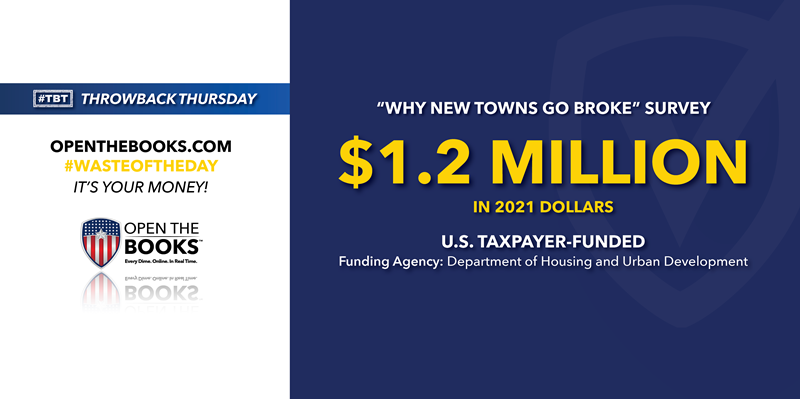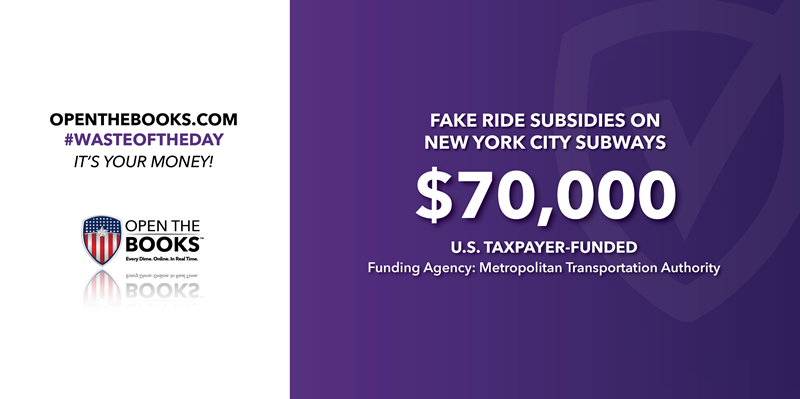
USPS Will Pay Postmaster General-Connected Company $120M
December 13, 2021

Postmaster General Louis DeJoy has woven a tangled web of financial conflict that is costing taxpayers $120 million over five years.
XPO Logistics, a freight transportation company, pays DeJoy and family businesses at least $2.1 million every year to lease four office buildings in North Carolina, The Washington Post reported.
DeJoy was supply chain chief executive at XPO from 2014 to 2015 after the company bought New Breed Logistics, the trucking firm DeJoy owned for more than three decades.
Since he became postmaster general, DeJoy, his companies, and his family foundation divested between $65.4 million and $155.3 million worth of XPO shares, The Post reported.
But the family businesses still leases the four North Carolina office buildings to XPO.
Now, the USPS will pay $120 million over five years to XPO to run operations at sorting and distribution facilities in Atlanta and Washington, D.C.
The procurement process for the XPO contract was competitively bid and DeJoy wasn’t involved, USPS spokesman Jeffery Adams said.
And the XPO office building leases were cleared by ethics officials before DeJoy took office in June 2020, because they were rented to a contractor and not the agency itself, The Post reported.
Still, it looks a bit sketchy.
“There’s no question he’s continuing to profit from a Postal Service contractor,” Virginia Canter, chief ethics counsel at watchdog group Citizens for Responsibility and Ethics in Washington, told The Post. “He can comply with these technical legal requirements … but it does create an appearance issue about whether it’s in his financial interest to continue to make policy that would benefit contractors like XPO.”
VA Hiring Spree Added Over 100,000 More Staffers, Is Increased Spending Helping Veterans?
December 14, 2021

The U.S. Department of Veterans Affairs is so overwhelmed and unable to serve veterans who need medical care that it sends veterans to private doctors in the VA Community Care program.
But even that system is overwhelmed, with a current backlog of 17,000 Atlanta-area veterans waiting to get appointments. Some are waiting more than six months, according to WSB-TV in Atlanta.
One of those veterans was diagnosed with colon cancer on Nov. 8, 2020, but didn’t receive further testing, screening, or treatment for many months.
His cancer was treated only after he came back to the Atlanta VA Medical Center emergency room in severe pain months later, the TV station reported.
It turns out his abdominal pain was due to cancer in the colon, liver and pancreas. That veteran died Oct. 31, 2021.
His story is only one of many unfortunate ones that WSB-TV reported on, as the VA has been unable to manage basic systems, including allowing unopened mail to sit for months and delays in processing paperwork necessary to get life-saving care.
This shouldn’t be happening.
The VA has had a hiring spree, employing 421,542 people in 2020 — an increase of almost 50,000 people since 2016, according to our recent oversight report“Mapping the Swamp: A Study of the Administrative State (FY2020).”
VA employee numbers are up 106,037 since 2012 but only 6,674 are doctors.
The VA payroll for 2020 was $36.8 billion, with 109,386 employees earning $100,000 or more; 28,248 employees earning $200,000 or more and 7,454 employees earning $300,000 or more.
The VA has been given enough resources. The big question: Is the VA an employment farm or a medical system?
Our veterans deserve answers.
$1.7M in Federal Grants Funds Ivy League Study on Slow, Overweight Turkeys
December 15, 2021

Americans may have had their fill of turkey after gorging themselves on the birds for Thanksgiving, but a new study — with not-so-new findings — has dished out second helpings.
Domesticated turkeys bred for their meat weigh up to three times more than their wild counterparts, according to a study from Brown University researchers that was funded with $1.7 million in federal grants.
While the birds have increased muscle mass and breast meat, there’s little change in the length of their bones and limbs, leading to a slower-moving turkey that waddles, the study says.
“The increase in body mass, relatively short hindlimb bones and altered distribution of muscle mass in today's domestic turkeys may make maintaining equivalent gait dynamics difficult,” the study noted.
Wild turkeys have been observed running a six-minute mile — a speed that puts novice runners to shame — but their captive brothers and sisters are far slower.
But this information has been reported in other turkeys-on-treadmills studies for nearly a decade.
The $1.7 million in grants from the National Institutes of Health and the National Science Foundation is taxpayer money wasted, Sen. Joni Ernst pointed out in giving NIH and NSF the November 2021 Squeal Award for this study.
“With our national debt approaching $30 trillion and higher prices making it difficult for families to put food on the table, we cannot afford to continue wasting taxpayer dollars funding fowl projects … and folks, this one is a real turkey!” Ernst said in her announcement of the award.
In 1976, a $1.2 Million Study “Why New Towns Go Broke?”
December 16, 2021

Throwback Thursday!
“Over the last decade, new towns and new communities have been studied to death while most of the new towns are either dead or dying,” Proxmire said in 1976. “We need another new town study like Boston needs beans or Jimmy Carter needs peanuts.”
The Department of Housing and Urban Development set out to answer the question of why new towns go broke. But that’s a question that has been answered many times before, making the $245,000 that was spent on the study (1976) — $1.2 million in 2021 dollars — a waste, said Sen. William Proxmire, a Democrat from Wisconsin.
He gave HUD a Golden Fleece award for wasteful and nonsensical spending, one of 168 such awards he gave out between 1975 and 1988.
New towns require a “massive investment” without having any cash flow, he said, a problem noted in many of the 67 new town studies stored in the Library of Congress.
These studies have been done by the government and private entities, looking at the funding of new towns, the governments of new towns, the quality of life, planning and sociology of new towns.
HUD alone has funded at least a dozen such studies in the last few years leading up to 1976, costing more than $1.5 million (nearly $7.5 million inflation adjusted 2021), Proxmire said.
“One of the major reasons there are so many duplicative studies done by the federal government is that there is no central place where a listing and description of previous studies is available,” Proxmire said. “The right hand of the government does not know — and more often than not, does not even try to find out — what the left hand of the government is studying, has studied or is proposing to study.”
Fake Rides on the New York Subway Cost Taxpayers $70,000
December 17, 2021

Only 25 percent of New York City subways are wheelchair accessible. Fortunately, the disabled and elderly can call Access-A-Ride for a pick-up at their home at a discounted rate, provided by the Metropolitan Transportation Authority (MTA).
The MTA, a taxpayer-funded state agency, contracts with private company Curb Mobility to provide on-demand rides. Apparently, the MTA doesn’t do much in the realm of ensuring the company isn’t committing fraud with taxpayer money.
A recent audit by the MTA Inspector General found that a Curb Mobility driver allegedly bilked the MTA out of nearly $70,000 for fake rides, the New York Post reported.
While MTA officials in 2018 requested the company take up specific fraud-detection strategies, the company didn’t and the MTA never checked back in.
The fraudulent driver said he picked up the same woman 661 times between September 2020 and February 2021 and charged the MTA $69,890. In reality, the vehicle was empty, Queens District Attorney Melinda Katz said, whose office has charged him with grand larceny, identity theft, and falsifying business records, The Post reported.
It was only after the MTA IG office began the investigation into the fake rides that MTA officials asked Curb Mobility if it had conducted the requested anti-fraud analyses, The Post reported.
MTA IG Carolyn Pokorny was spot on when she said, “Outsourcing fraud controls to a contractor, and not even verifying that they are being completed, is a bad idea. It is imperative that the MTA… ensure that fraud is detected, and deterred, before taxpayers and riders foot the bill.”
The #WasteOfTheDay is presented by the forensic auditors at OpenTheBooks.com.